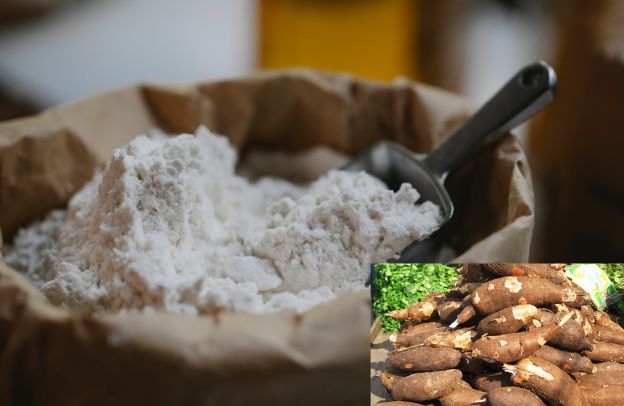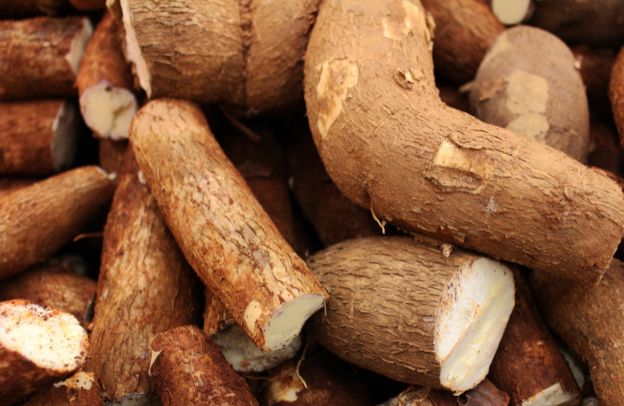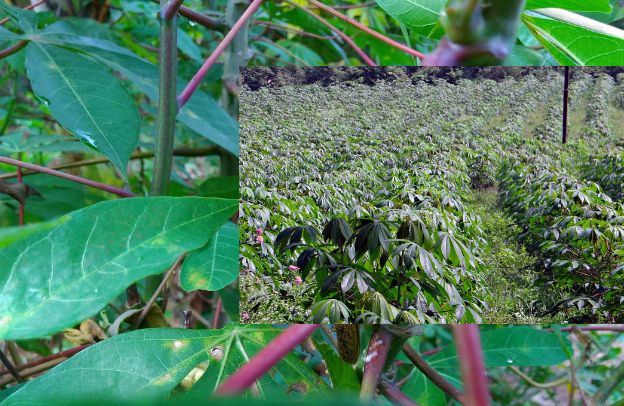The Nigerian Agricultural and Agribusiness Potential: A Golden Opportunity for African Diaspora Entrepreneurs

Have you ever considered that Africa’s economic prosperity may be rooted in the wealth beneath its soil? As an African diaspora entrepreneur, you’re in a unique position to unlock the immense potential of Nigeria’s agricultural and agribusiness sectors. With a population exceeding 220 million and an urgent need for food security, Nigeria offers an unparalleled, once-in-a-lifetime opportunity to transform its agricultural landscape.
Take your Business Storytelling to the next level through our Story To Asset Transformation Framework.
But beyond simply nourishing a nation, agribusiness is a powerful engine for wealth creation—fueling job growth, boosting exports, and driving industrial expansion.
Nigeria’s Agricultural Paradox: Challenges, Opportunities, and Investment Potential
Despite its vast arable land and favorable climate, Nigeria remains heavily reliant on food imports, spending $10 billion annually to meet its agricultural shortfalls. According to the International Trade Administration (ITA), the country’s major imports include wheat, rice, poultry, fish, and other consumer-oriented foods, sourced primarily from Europe, Asia, the United States, South America, and South Africa.
Government Initiatives to Strengthen Agriculture
To reduce import dependency and promote food self-sufficiency, the Nigerian government has launched several agricultural policies, including:
- Anchor Borrowers Program (ABP) – A financing scheme designed to boost smallholder farmers’ productivity and support local food production.
- National Agricultural Technology and Innovation Plan (NATIP) (2022-2026) – A four-year roadmap replacing the Agriculture Promotion Policy (APP) (2016-2020), aimed at fostering agricultural innovation and strengthening food security.
- National Development Plan (2021-2025) – A comprehensive economic strategy addressing agricultural infrastructure, climate adaptation, and macroeconomic stability to improve productivity.
Key Challenges Facing Nigeria’s Agricultural Sector
Despite these interventions, Nigeria’s agricultural sector struggles with persistent challenges, including:
- Climate & Environmental Risks – Frequent flooding, desertification, and unpredictable rainfall disrupt crop and livestock production.
- Security Concerns – Conflicts between farmers and herders, extremist insurgencies, and rural banditry hinder agricultural activities.
- Infrastructure Deficiencies – Poor road networks, inadequate storage facilities, and unreliable electricity limit market access and processing efficiency.
Untapped Opportunities in Agribusiness
Despite the challenges, Nigeria’s agriculture sector offers significant untapped opportunities for investors. With a growing population and increasing demand for food, there is a substantial potential for growth in areas such as crop production, agritech, processing, and exports.
The sector’s potential is further enhanced by the government’s push for agricultural development, creating a favorable environment for those looking to capitalize on the vast opportunities within Nigeria’s agribusiness landscape:
- Food Processing & Agro-Industrial Development – Investing in local processing to reduce post-harvest losses and cut import dependency.
- Infrastructure Development – Enhancing rural road networks, storage solutions, and irrigation systems to boost productivity.
- Climate-Resilient & Mechanized Farming – Leveraging agritech, irrigation systems, and modern mechanization to mitigate climate risks.
By investing in sustainable agriculture, value addition, and agritech, you can generate wealth, create jobs, and contribute to food security in Africa’s largest economy.
Nigeria’s Agricultural Landscape: A Sleeping Giant Awakened
Nigeria’s agricultural sector remains the backbone of its economy, yet it is vastly underutilized. According to the FAO, the country has over 70 million hectares of cultivable land, but less than half of this is currently being cultivated. Despite its abundant natural resources, the sector continues to grapple with low productivity, outdated farming practices, and inadequate infrastructure.
A Changing Landscape: Rising Demand and Agribusiness Opportunities
With Nigeria’s rapidly growing population, the demand for food is projected to double by 2050. Urbanization is shifting consumption patterns, fueling a surge in demand for processed and packaged foods. This evolving market presents a significant opportunity for agribusiness investors to bridge supply gaps and scale food production.
By investing in mechanized farming, agro-processing, and efficient supply chains, Nigeria can not only satisfy its domestic food needs but also position itself as a key supplier in regional and global markets.
With strategic investments and supportive policies, Nigeria’s agricultural sector can unlock new economic opportunities, enhance food security, and reduce its reliance on imports—paving the way for sustainable growth and long-term prosperity.
High-Potential Agribusiness Sectors
Cassava is Nigeria’s most cultivated crop. According to (FAO), Nigeria’s cassava production in 2002 was estimated at approximately 34 million tonnes. Production trends reported by the Central Bank of Nigeria aligned with FAO data until 1996, after which production increased—peaking at 37 million tonnes in 2000 (FMANR, 1997; Central Bank of Nigeria).
In contrast, the Presidential Cassava Unit (PCU, 2003) offered a more conservative estimate of 28 million tonnes in 2002.
Traditionally grown for food staples such as garri and fufu, cassava has evolved into a versatile industrial commodity used in the production of flour, ethanol, starch, and biofuels. For diaspora investors, cassava presents promising opportunities, including:
- Cassava Flour Processing: Offering a substitute for wheat imports.
- Ethanol Production: Serving industrial and pharmaceutical applications.
- Export Opportunities: Supplying cassava chips and starch to markets in China and Europe, where demand is surging.
See also: Processing Cassava for Increased Profit: A Guide for Nigerian Farmers
Rice: Closing Nigeria’s $2 Billion Import Gap
According to the USDA, rice consumption in Nigeria is projected to increase by approximately 4 percent to 7.8 million metric tonnes (MMT). This rise is attributed to government distribution of low or no-cost rice to food-insecure populations, alongside a growing influx of unofficial rice imports.
However, the Nigerian government’s Rice Anchor Borrowers’ Program has boosted local production, creating promising opportunities for investors in:
- Rice milling and packaging for both domestic consumption and export.
- Irrigated rice farming to enhance yields and reduce seasonal production gaps.
- Fortified rice production to cater to the rising demand for nutrient-enriched food in urban areas.
With the right investment strategies, Nigeria can move toward self-sufficiency in rice production.
Palm Oil: The Green Gold of Agribusiness
Nigeria was once the world’s leading palm oil producer but has since been overtaken by Malaysia and Indonesia. However, the local market remains under-supplied, forcing imports of over 600,000 metric tons annually. As an investor, you can capitalize on:
Palm oil plantations for sustainable and high-yield production.
Processing plants to extract crude and refined palm oil for cosmetics and food.
Exporting high-quality palm kernel oil, a sought-after commodity in global markets.
Nigeria’s palm oil industry is valued at over $500 million, with the potential to exceed $1 billion in the next five years.
Livestock and Dairy: Tapping into a $5 Billion Industry
Nigeria imports about $1.5 billion worth of dairy products annually, with demand projected to rise (Dairy News, 2024). The livestock sector, which includes cattle, poultry, and fish farming, provides an entry point into:
- Dairy processing plants for milk, yogurt, and cheese production.
- Commercial poultry farming to meet the growing demand for eggs and chicken.
- Fish farming and aquaculture to reduce the $1 billion seafood import bill.
By leveraging modern breeding and processing techniques, you can establish a profitable livestock venture while improving food security.
Overcoming Challenges: What You Need to Succeed
While Nigeria’s agribusiness potential is vast, it comes with challenges that require strategic solutions.
Access to Land and Government Support
Land ownership can be complex, but as a diaspora investor, you can explore:
- Leasing arrangements from state governments.
- Public-private partnerships for large-scale agribusiness projects.
- Diaspora-targeted investment incentives, such as tax breaks and grants.
The Nigeria Incentive-Based Risk Sharing System for Agricultural Lending (NIRSAL) offers financing guarantees to agribusiness investors (NIRSAL, 2023).
2. Finding Reliable Local Partners
Success in Nigerian agribusiness depends on building the right networks. Consider partnerships with:
Farmers’ cooperatives for sourcing raw materials.
Research institutions for improved crop varieties and farming techniques.
Export agencies for access to international markets.
Platforms like the Nigerian Investment Promotion Commission (NIPC) provide guidance on navigating the local business landscape.
Managing Logistics and Supply Chain Issues
Poor infrastructure remains a challenge, but investors can mitigate risks by:
- Investing in cold storage facilities to reduce post-harvest losses.
- Building efficient transportation networks for farm-to-market delivery.
- Developing processing plants to enhance value addition.
Diaspora Investment: Why Your Role Matters
As a member of the African diaspora, your investment in Nigerian agribusiness is more than just a financial opportunity, it’s a vehicle for transformation. According to the World Bank, remittances to Nigeria exceeded $20 billion in 2023, surpassing foreign direct investment. Redirecting a portion of these funds into agribusiness could stimulate rural employment and industrial growth.
Moreover, organizations like the African Diaspora Network (ADN) are supporting diaspora-led agricultural initiatives. By engaging with these networks, you can gain access to mentorship, funding, and local partnerships.
See also: Best Financing Strategies For Small And Medium-Scale Farmers: What You Need To Know
Conclusion: The Time to Invest Is Now
The Nigerian agribusiness sector is brimming with untapped potential. With rising food demand, government incentives, and growing export markets, now is the ideal time for African diaspora entrepreneurs to step in. Whether it’s cassava, rice, palm oil, or livestock farming, the opportunities are vast, but success depends on strategy, partnerships, and a long-term vision.
By investing in Nigeria’s agriculture, you’re not just building wealth; you’re contributing to food security, job creation, and economic transformation. The next agricultural revolution is waiting. The question is, will you be a part of it?
Take your Business Storytelling to the next level through our Story To Asset Transformation Framework.





